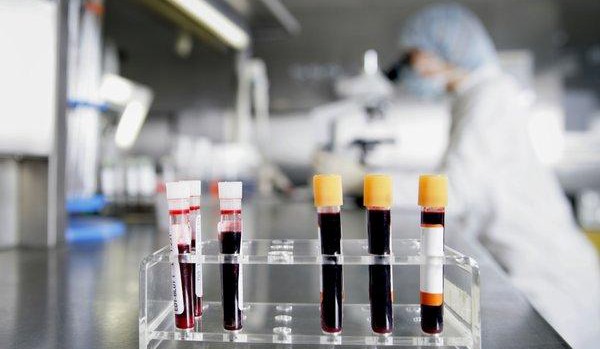
A novel blood test allowing doctors to predict which ovarian cancer patients will respond to particular types of treatment is a step closer following a new study by Manchester scientists.
Researchers from the University of Manchester and the Christie NHS Foundation Trust — both part of Manchester Cancer Research Center — say the test could be developed and used in hospitals within the next few years. It would mean medics could see which patients could benefit from blood vessel-targeting drugs – such as bevacizumab – in addition to conventional therapy. Meanwhile, others who are not going to benefit would be spared the time and side effects associated with having the drug. The test would also help to reduce the cost to the NHS.
Ovarian cancer has the distinction of being the most lethal cancer to affect the female reproductive system. The disease, which starts in the two ovaries that are located in the uterus, typically causes few or no symptoms in the beginning, making it particularly difficult to diagnose and treat. The American Cancer Society estimates that in 2014, about 21,980 new cases of ovarian cancer will be diagnosed and 14,270 American women will die of it.
Ovarian cancer has seen little increase in survival rates over the last few decades and scientists are seeking new treatment strategies to improve the standard approach of surgery and chemotherapy. A recent advance has been to target the development of new blood vessels within the tumor — preventing the cancer from receiving the nutrients it needs to grow. One of the blood vessel-targeting drugs, bevacizumab (Avastin), has shown significant but modest improvements in disease-free survival rates for some women with advanced ovarian cancer.
However, not all patients benefit from bevacizumab, and researchers are not yet sure why. Because of the potential for side effects and interactions with the drug, doctors are seeking ways to predict which patients are most likely to gain an advantage from this type of drug.
Advances in personalized treatment
In the new study, the research team looked at blood samples from patients enrolled in an international trial of bevacizumab. These patients received either standard chemotherapy treatment alone or chemotherapy plus the blood vessel-targeting drug.
“We are keen to identify predictive biomarkers – measures that can indicate how well a patient will respond to treatment – so we can better target these drugs to patients most likely to benefit,” explains Dr. Gordon Jayson, Professor of Medical Oncology at The University of Manchester and Honorary Consultant at The Christie, who jointly led the study. “We investigated levels of a range of proteins in patients’ pre-treatment blood samples to see if any were associated with improved survival.”
The findings, published recently in the journal Clinical Cancer Research, show that two particular proteins – Ang1 and Tie2 – could be used in combination to predict patient response. Patients with high levels of Ang1 and low levels of Tie2 were most likely to benefit from bevacizumab. Both these proteins are involved in controlling the formation of new blood vessels. Conversely, they found that patients with high levels of both proteins did not benefit from the additional drug.
The team’s next step is to further explore the potential of using a blood test to personalize treatment for ovarian cancer patients, says study co-author Dr. Caroline Dive, from the Cancer Research UK Manchester Institute. “Moving towards a more individualized treatment plan specific for each patient and their particular tumor is key to improving outcomes for patients while sparing those unlikely to benefit from potential side effects of therapy.”
In a similar study published last month, scientists at A*STAR’s Institute of Medical Biology (IMB) and the Bioinformatics Institute (BII) successfully identified a biomarker of ovarian stem cells that accurately predicts the risk of tumor development. The team behind the investigation said the discovery could allow for earlier detection of ovarian cancer and thus may enable patients to start treatment at an early stage of the illness. In a separate study, the same team also recently identified a set of genes whose mutation status could be used for prognosis and development of personalized treatment for high-grade serous ovarian carcinoma (HG-SOC), the most prevalent of type of ovarian cancer.
